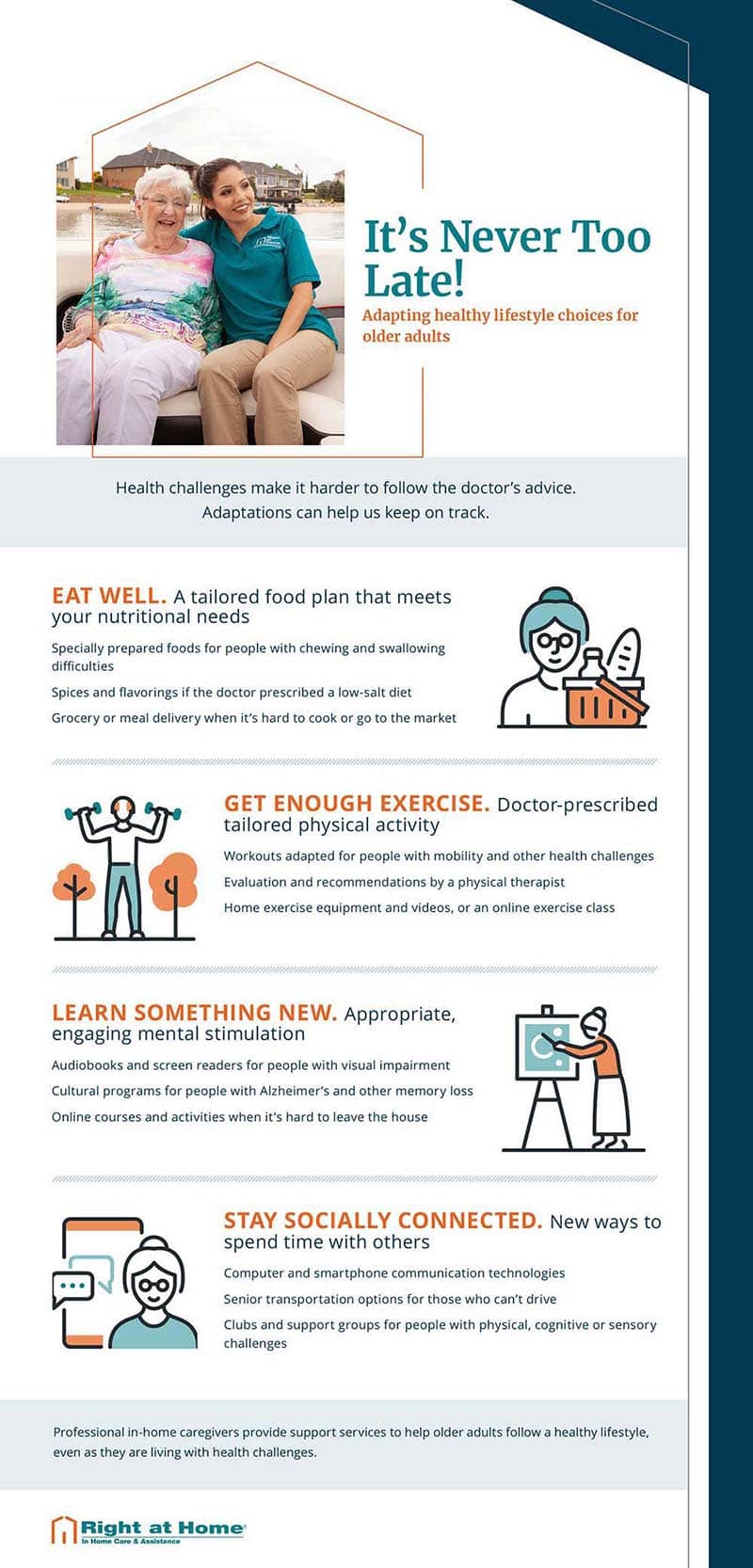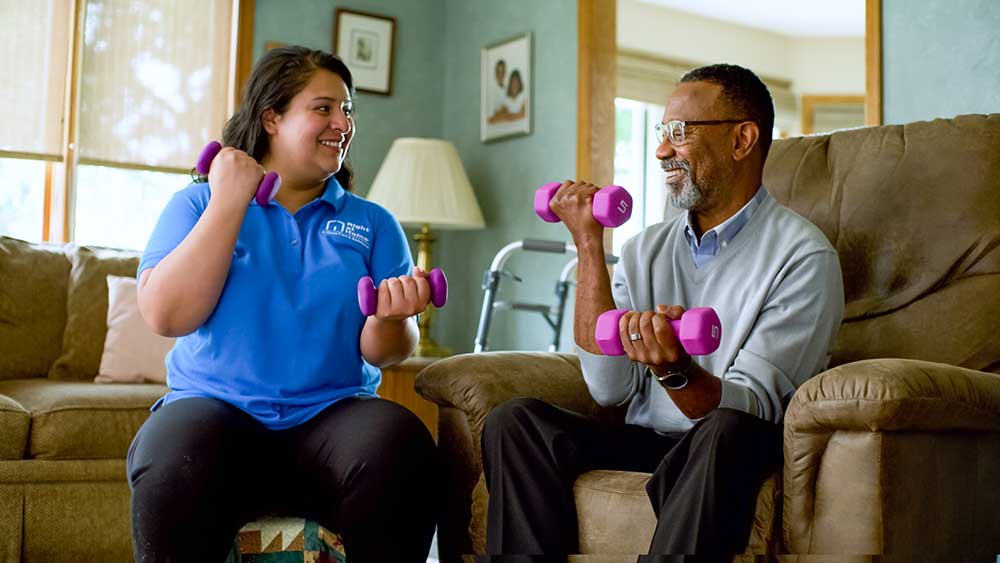

Infographic: It’s Never Too Late!
So much research shows that lifestyle choices can benefit our physical, cognitive and emotional health. But chronic illness, injury and even the normal changes of aging can make it more challenging to eat well, to get enough physical and mental exercise, and to stay socially connected. Gerontologists say the key is to adapt activities as our needs change.

Right at Home professional in-home caregivers help seniors tailor activities for their individual needs with care support for adapted activities: supervision during exercise, assistance with meal preparation, as well as conversation and companionship to keep clients mentally and socially engaged.
It’s Never Too Late!
Adapting healthy lifestyle choices for older adults
Health challenges make it harder to follow the doctor’s advice. Adaptations can help us keep on track.
Eat Well.
A tailored food plan that meets your nutritional needs
- Specially prepared foods for people with chewing and swallowing difficulties
- Spices and flavorings if the doctor prescribed a low-salt diet
- Grocery or meal delivery when it’s hard to cook or go to the market
Get Enough Exercise.
Doctor-prescribed tailored physical activity
- Workouts adapted for people with mobility and other health challenges
- Evaluation and recommendations by a physical therapist
- Home exercise equipment and videos, or an online exercise class
Learn Something New.
Appropriate, engaging mental stimulation
- Audiobooks and screen readers for people with visual impairment
- Cultural programs for people with Alzheimer’s and other memory loss
- Online courses and activities when it’s hard to leave the house
Stay Socially Connected.
New ways to spend time with others
- Computer and smartphone communication technologies
- Senior transportation options for those who can’t drive
- Clubs and support groups for people with physical, cognitive or sensory challenges
Professional in-home caregivers provide support services to help older adults follow a healthy lifestyle, even as they are living with health challenges.







